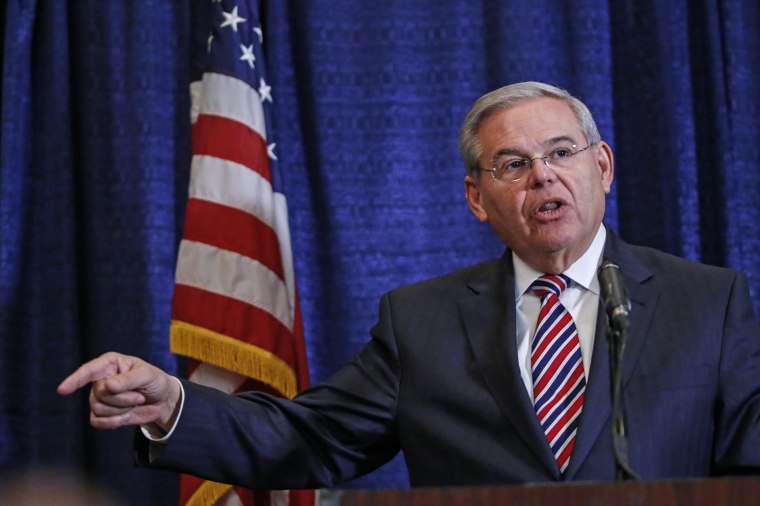A second Democratic senator says he's opposed to the Iran nuclear agreement.
New Jersey's Bob Menendez on Tuesday said in a speech in his home state that he opposes the deal which would curb Iran's nuclear program in exchange for relief from economic sanctions.
The deal would allow Iran to become "flush with money", which it could use "to further pursue their destabilizing hegemonic goals in the region."
"We want the right deal and a deal that does nothing more than delay the inevitable is not a deal we are willing to make," Menendez said to applause during his speech at Seton Hall University's School of Diplomacy and International Relations.
The senior member of the Senate Foreign Relations Committee joins Sen. Chuck Schumer of New York in rejecting the deal.
Related: Imperfect Balance: Experts Say Iran Nuclear Deal a Step Forward
Iran has been negotiating with the U.S., Britain, France, Germany, Russia and China for years to try and craft a workable and comprehensive plan. The agreement involves limiting Iran's nuclear production for 10 years and Tehran's access to nuclear fuel and equipment for 15 years in return for hundreds of millions of dollars in sanctions relief.
The deal still faces a vote in Congress, although it is unclear whether Republicans and some Democrats who object to the deal will actually be able to override the decision — and Obama has threatened to veto any attempt to reject the accord.
Menendez said that he is opposed to the measure because Iran has violated various U.N. Security Council resolutions while advancing its nuclear program.
He said that he is concerned that the agreement doesn't require Iran to dismantle its nuclear infrastructure.
Menendez also said it's not an issue of whether he supports or opposes President Barack Obama, who has pledged to veto a congressional resolution of disapproval.
Related: Sec. Kerry Fiercely Defends Iran Nuclear Deal to Congress
The two senators' opposition is no surprise said Jim Walsh, a nuclear policy and international security expert and research associate at Massachusetts Institute of Technology's Security Studies Program.
Menendez "has been a critic at every opportunity," Walsh said.
Last month, Secretary of State John Kerry, Energy Secretary Ernest Moniz and Treasury Secretary Jacob Lew fiercely defended the Iran nuclear deal as they faced tough questions from skeptical lawmakers.
Menendez pressed Kerry with tough questions about whether the president is willing to "make a clear an unequivocal statement" that under no circumstance will Iran be allowed to develop a nuclear weapon.
"The president has said very clearly under no circumstances will they be allowed to get nuclear weapon," Kerry said.
Then, as Menendez began to interject, Kerry said "senator if you want an answer."
"No, no, please I'm sorry I have limited time, you have been with the Iranians two years, I have seven minutes," Menendez said.
"I know, but it's worthy," Kerry responded.
The two had another tense exchange over the implications of the so-called "snapback" provision that will restore sanctions in 65 days if Iran violates the deal.
"If you're going to snapback, you have to snapback to something," Menendez asserted testily.
"But senator," Kerry interjected, "Senator, snapback is what gives you permission to come back..."
"Let me finish, Mr. Secretary please, don't eat up my time," Menendez insisted adding "It's next year! So I don't understand how we ultimately have a credible belief that snapback means something if in fact you are not going to have the ability to have those sanctions in place!"
On Tuesday, Menendez expressed incredulity that the deal is the best the world powers could craft.
"I believe there is a pathway to a better deal," he said.
The deal might not be perfect, but it's certainly better than the alternatives, some nuclear and foreign policy experts say.
"My sense is that the recent developments are not unexpected and will have little impact on the numbers that matter — whether there are enough votes to override a presidential veto," said David Rothkopf, a former Clinton administration official and editor of Foreign Policy Group, a collection of foreign policy publications. "There are not. And therefore the president will prevail and the Iran deal will proceed."

